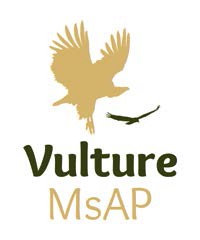Only one week ago we reported on the latest mass-poisoning of vultures in Africa, when 75 vultures and 6 lions were found poisoned in Tanzania. Barely 7 days later, and one day after the world marked the wold wildlife day, we are saddened to report another mass-poisoning case of vultures: 87 vultures were found dead in Mozambique.
These successive and frequent events are driving several species of African vultures to extinction, and vindicate what the Vulture Multi-species Action Plan (Vulture MsAP) – a global strategic blueprint identifying priorities and actions to conserve 15 species of old world vultures, approved recently in the conference of the parties of the Convention for Migratory Species – says: poison with poisoned baits (often against predators of livestock) is the main threat to vultures worldwide.
The VCF is particularly active in fighting this threat and is implementing several projects across Europe including many actions against poisoning. We are also in contact with some African colleagues fighting this threat, but the news coming from that continent are even bleaker than from Europe – seems that the African vulture crisis is continuing. In the last 30 years some African species have declined by 80%, and four species of African vulture are now considered Critically Endangered, while three other species are Endangered.
The latest bad news came from the Mbashene communal area in southern Mozambique, not far from South Africa, where 87 vultures were found death on the the 25th February near a poisoned elephant carcass.
André Botha, working at South Africa’s Endangered Wildlife Trust (EWT), and the coordinator of the team that have developed the Vulture MsAP, described a harrowing scene of vulture corpses around the young elephant – some of the vultures had been mutilated, presumable to extract body parts for traditional medicine.
In total there were 104 vultures affected – 87 dead (80 African White-backed Vultures (Gyps africanus) and seven Hooded Vultures (Necrosyrtes monachus), and 17 vultures that could be found alive and were treated on the spot by Andre Botha and his team, and then taken to rehabilitation.
The authorities have detained s suspect and confiscated the small tusks taken from the young dead elephant, as well as the toxic substance used to poison the carcass
One other aspect to emphasize was the importance of the rapid response, that allowed for the rescue and treatment of many poisoned vultures, and the elimination of the carcasses, thus preventing further poisoning . In this case, EWT’s Andre Botha worked with the Incomati Conservancy, which is adjacent to the communal area where the incident took place, and veterinary Dr João Almeida from Sabie Game Park and the State Veterinary Services at Skukuza. Without their actions, the outcome could have been far worse.
The EWT and other organisations have been promoting training programme on the effective intervention of wildlife poisoning incidents, and have distributed Poison Response Kits across the continent.
